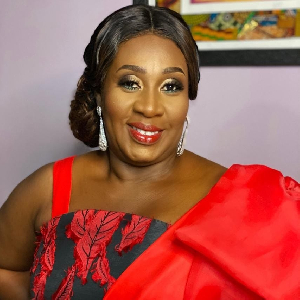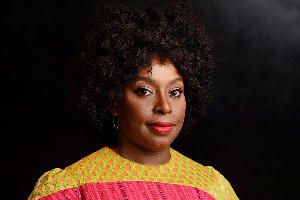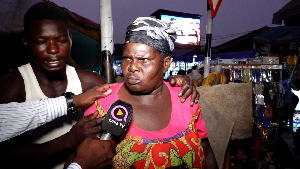Years ago, in a small community in the Central Region of Ghana, there lived a young boy named Kofi Wodo, a child born into wealth and privilege. His parents were affluent and highly connected, living a life adorned with luxury that most could only dream of.
They gave Kofi Wodo everything he desired—fancy clothes, expensive gadgets, and the best education money could buy. Yet, beneath this veneer of privilege, a deep sense of entitlement and lawlessness festered in Kofi’s heart. What began as harmless acts of defiance quickly spiralled into a life of crime and disrespect.
Recalcitrant behaviour
Kofi Wodo was known far and wide, but not for the reasons most parents would hope for. He became the talk of town, notorious for his recalcitrant behaviour. His peers knew him as the boy who could get away with anything, and in truth, he often did. His first brushes with lawlessness started as simple truancy from school.
While his teachers called for disciplinary action, his parents were always there to intervene. They made sure that Kofi suffered no consequences, reinforcing the idea that rules didn’t apply to him.
Empowered by the lack of repercussions, Kofi’s behaviour grew worse. It is important to note that by his teenage years, he had transformed into a full-fledged miscreant. Stealing vehicles became his pastime, a thrill that provided material gain and the pleasure of outwitting authorities.
He would beat police officers who tried to arrest him, often walking away from confrontations with a smug sense of invincibility. How could he not? Each time he was arrested, his well-connected parents would arrive at the police station, ready to bail him out.
Public disturbance
These frequent interventions only served to inflate Kofi’s ego and escalate his criminal activities. It became almost a routine: Kofi would steal a car or cause a public disturbance, and his parents would show up to rescue him, no questions asked.
The more he was bailed out, the more audacious his crimes became. Soon, he was a petty thief and a dangerous individual who operated above the law. Kofi was feared because of his physical strength and the fact that everyone knew that no matter what he did, he would escape justice.
Rebellious youth
The community murmured in disbelief and concern. How could a boy raised in such privilege become so lawless? People wondered if his parents ever saw the monster they were nurturing. But it was too late. The damage had been done. Kofi Wodo was no longer just a rebellious youth; he had evolved into a menace to society, his name synonymous with crime and corruption.
Today, many parents find themselves in a similar situation, even pastors, so to speak, though perhaps less extreme or more extreme. The overprotecting of children, shielding them from the consequences of their actions, creates an illusion of immunity that can have devastating effects. Children who are never taught discipline and who are never held accountable for their mistakes often grow up to repeat Kofi Wodo’s path—if not in crime, then in a lack of respect for authority and others.
Unchecked privilege
This piece of mine about Kofi Wodo serves as a cautionary story. His life was not ruined by poverty or a lack of opportunity but by unchecked privilege and indulgence. His parents, in their desire to give him everything, forgot the most important gift they could offer: a sense of responsibility and respect for the rule of law.
Parents must recognise that overpampering their wards has dire consequences. Sooner or later, they will face the grim reality of their children’s actions, and by then, it may be too late. Like Kofi Wodo’s parents, many will wonder where it all went wrong, only to realise that the answer was before them all along.
As I speak, many parents who are reading this piece of mine are guilty as charged of pampering a certain Kofi Wodo in their home. Already the stakes are high, and I wouldn’t mention any other atrocities carried out by a certain Kofi Wodo of our time. Read; some parents will read but not put in measures to correct their own Kofi Wodo.
It is therefore imperative and relevant to indicate that raising responsible, respectful children requires more than wealth—it demands guidance, discipline, and most importantly, accountability.
Opinions of Thursday, 24 October 2024
Columnist: Amanda Atunah















